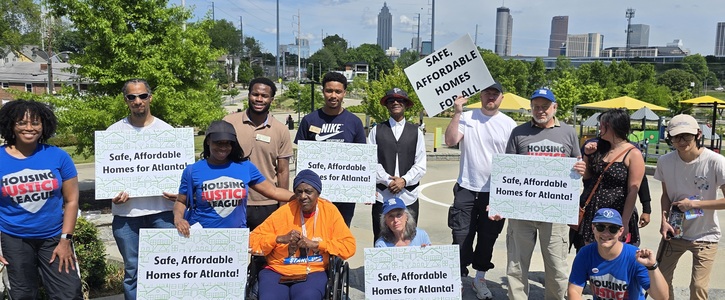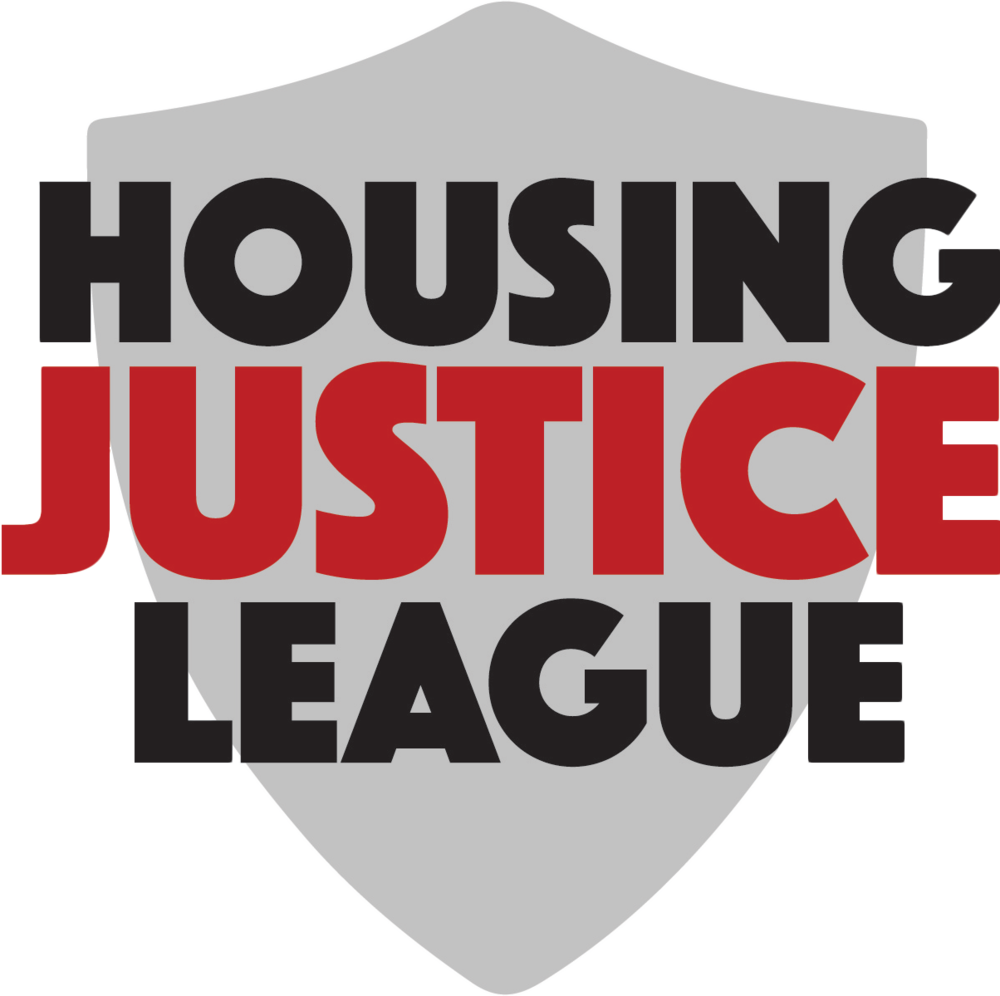100 signatures reached
To: Atlanta City Council & Atlanta Mayor Andre Dickens
Support HJL's Housing Policy Package for Atlanta!

Housing Justice League presents the following policy package designed to advance accessible, affordable housing that puts resident needs over developer profit.
Redefine Affordability
Atlanta must prioritize the creation of affordable units for residents at the lowest income levels. The city should move away from area median income (AMI) as an affordability metric, and instead calculate housing affordability based on the minimum wage for the state.
A Transparent and Publicly Accessible Housing Trust Fund
Atlanta must democratize its Housing Trust Fund and place it into the hands of the public by providing a forum for residents to engage in the process of identifying and developing new projects, creating a website to provide transparency and accessibility, and providing regular communications to keep the public in the loop about the fund’s latest updates.
Massively Scale Up the Creation of Social Housing
Atlanta must quadruple the mayor's goal of 20,000 new affordable units to 80,000 affordable units. This can be done through a variety of means, including utilizing vacant Atlanta Public School property, developing vacant land owned by the city, and seizing the properties of slumlords with rampant code violations and turning them over to land trusts and NGO developers. Funding can be provided by TADs (Tax Allocation Districts), CIDs (Community Improvement Districts) and municipal bonds.
Requirements for New Developments
The city of Atlanta must abolish the "in-lieu-of” fees that developers can pay to get out of requirements to create affordable units. Developments receiving subsidies from the city must adhere to rent regulations and community benefit agreements, and must accept housing vouchers.
Implement City-wide Inclusionary Zoning
Inclusionary zoning requires developers to set aside a fraction of newly constructed housing units to be affordable to lower-income households. Atlanta has implemented inclusionary zoning in specific areas, but has yet to expand this policy city-wide.
Affirmatively Further Fair Housing (AFFH) Enforcement
The Affirmatively Furthering Fair Housing (AFFH) Rule is intended to implement a provision of the Fair Housing Act of 1968, which bans housing discrimination and predatory real estate practices. The AFFH was designed to help local governments and housing agencies proactively address persistent barriers to fair housing and equal opportunity. Localities can expand and enforce this rule, and Atlanta should conduct an analysis and design its own mechanism to correct the city’s legacies of segregation and discrimination.
Rental Assistance Fund
Atlanta should create a recurring rental assistance fund that is easily accessible and user-friendly. It can be funded by taxes on developers, sales taxes, and permit license fees.
Create an Office of the Tenant Advocate
Washington, DC, Los Angeles, New York City, and other cities have created an Office of the Tenant Advocate (OTA) in order to provide a resource for tenants. The OTA takes questions, comments, and complaints concerning building repairs, tenant harassment, and other tenant-related issues.
New and Humane Policy for the City's Engagement with Homeless Populations
Atlanta should adopt a housing first policy towards homelessness that includes transitional housing, wraparound services, and ultimately permanent and sustainable housing. Atlanta should permanently end the homeless encampment sweeps, and adopt the Old Wheat Street pilot as recommended by the Justice for Cornelius Taylor Coalition.
Finally, the Mayor should make a commitment to advocate for the lifting of state preemptions on rent control and the right of tenants to withhold rent. The mayor should also endorse a guaranteed income, just cause eviction, ending junk fees, strict code enforcement, and Housing Justice League’s Tenant Bill of Rights.
Why is this important?
Atlanta needs a vision for housing justice that centers housing, dignity, and real solutions. These measures will help reduce homelessness, support economic mobility, and create more equitable, thriving communities.

